The eight worldly concerns can prevent us from experiencing inner peace and moksha despite how much we try to reach Nirvana, according to Buddhism. The eight worldly concerns refer to eight particular transitory things in life which limit our sentient understanding to experience happiness.
Buddhist beliefs reveal that being materialistic or clinging to pride and ego or having a desire for material possessions amounts to suffering, which hinders our ability to experience true happiness.
So before we start learning about chakras, yoga, or meditation, we first need to learn and understand the core principles of the worldly dharmas.
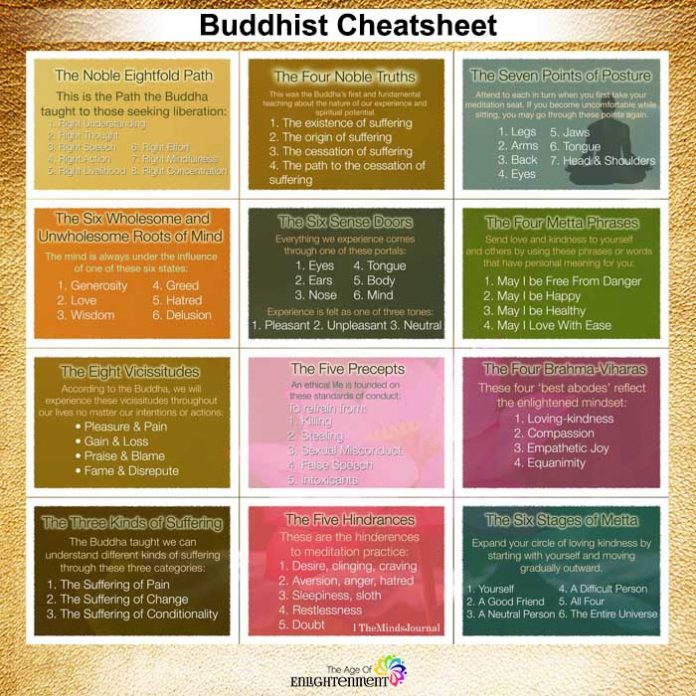
“The first step to your spiritual awakening is to work on your concerns,” explains Exploring Your Mind. Once we have learned to eliminate negative thoughts, senseless desires, toxic attachments, and insecurities related to loss, we can finally begin the process of letting go and detach from material attachments.
Related: 8 Buddhist Beliefs To Heal Your Soul and Find Happiness
What Are The Eight Worldly Concerns?
The Aṣṭalokadharma or Aṭṭhalokadhamma was first mentioned by the great Buddhist master and scholar Nagarjuna. It is also known as the Eight Worldly Concerns or Samsaric Dharmas or Eight Worldly Preoccupations or Eight Worldly Winds or the Eight Vicissitudes.
Aṣṭalokadharma refers to a set of mundane worldly obsessions which often motivate individuals who tend to lack spiritual strength and perspective.
Being preoccupied with these worldly concerns can cause us a lot of suffering. This is why Buddhism encourages spiritual seekers to detach from the attachment of these dharmas.
Ringu Tulku Rinpoche, a Tibetan Buddhist teacher of the Kagyu tradition and the Founder of Karmapa Foundation Europe, explains “Real dharma practice is free from the eight worldly concerns… When your mind is focused on any of the eight worldly concerns, whether on the positive side or the negative side, your activities are not following the dharma.”
The eight worldly concerns are attachments and aversions that fasten us to the cycle of suffering of samsara. The eight worldly concerns comprise four hopes and four corresponding fears with which we endlessly surround ourselves. It is only by liberating us from these worldly concerns, we can discover enlightenment.
The eight worldly concerns are usually described in four pairs, which are:
- Hope for happiness & Fear of suffering (Pleasure and Pain)
- Hope for fame & Fear of insignificance (Fame and Disrepute)
- Hope for praise & Fear of blame (Praise and Blame)
- Hope for gain & Fear of loss (Success and Failure)
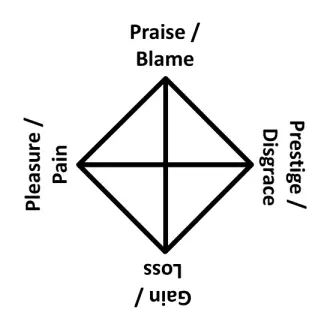
Detachment and Impermanence
The Buddhist concept of the eight worldly concerns is primarily based on detachment & impermanence. Certain learned behaviours and programmed mentality make us believe that our identity revolves around desires, recognition, social attention, and material possessions.
We believe these are crucial for our success and existence. However, we tend to forget that nothing is permanent. Impermanence is the very essence of nature and life.
Despite how much we feel attached to our expectations and desires, life will always be uncertain and dynamic. When we don’t realize that control is nothing but an illusion, even the slightest bit of change in life can severely affect our emotional and mental well-being.
“Unfulfilled expectations can stress you out or make you suffer. While your mind is under the influence of these dharmas, you’ll never be free,” adds Exploring Your Mind.
Ringu Tulku Rinpoche writes “Usually, we think that happiness comes from wealth, power, popularity, and pleasure, and that these four things will give us everything that we need. But from a spiritual point of view, these things are not the answer. Being rich is not a source of happiness, and being poor is not a source of unhappiness… Lasting peace and happiness do not depend on outer conditions; they come from seeing in a clear way.”
Related: Mono No Aware: The Awareness Of The Impermanence of Things
Understanding The Eight Worldly Concerns
Let us take a closer look at the eight worldly concerns so that we can gain a better understanding of how these affect us and how we can get rid of such attachments.
1 and 2 – Hope for happiness and Fear of suffering (Pleasure and Pain)
All of us want to feel happy and avoid suffering. It is our natural tendency to seek pleasant experiences and detest negative experiences in life. In fact, the more we experience happiness, the more afraid we become of suffering and pain. Hence, when suffering arises, we are unable to accept, acknowledge or overcome it.
According to Buddhism, there should always be a balance in everything in life. “When there’s humility, frugality, and fairness, there’s no place for excess. Buddhist philosophy dismisses desires and wants,” explains an article in Exploring Your Mind.
We should focus on moderation and wholeness and not worry about our desires. When we are able to detach our conscious thoughts from materialistic and selfish desires, we can experience compassion, wisdom, inner peace and spiritual growth.
3 and 4 – Hope for fame and Fear of insignificance (Fame and Disrepute)
As we are social creatures, all humans seek external validation and recognition. In fact, most of us are rather obsessed with fame to some extent. The more we desire recognition, the more we make external validation a priority in our lives, we become increasingly attached to it.
As a result, we end up constantly seeking it, whether in real life or on social media. And when we are unable to receive the recognition we want, we suffer from stress, anxiety and low self-esteem. This not only affects our mental and emotional well being, but also our spiritual progress.
The realization of our own insignificance can become significantly more damaging when we experience criticism, disapproval, blame and censorship. The harder we work to gain external validation from others, the deeper we end up in anxiety and suffering. This is one of the most important eight worldly dharmas.
5 and 6 – Hope for praise and Fear of blame (Praise and Blame)
Whether we admit it or not, most of us have a fragile sense of self-worth and self-esteem. And this makes us desire praise and detest blame. Praise makes us feel motivated, inspired and validated. It builds our confidence. Or at least that’s what we believe.
When we seek praise and are unable to receive it, we begin to start doubting ourselves. And as a result, our sense of self-worth, self-esteem and self confidence begins to shatter. As we stop getting praise, we become obsessed with covering our flaws, imperfections and mistakes so that people cannot find out about our insecurities and vulnerabilities.
However, we need to realize that self-esteem and confidence are not dependent on external validation or praise. It is only by acknowledging our imperfections, working on our insecurities and being genuine selves, can we truly be confident. Exploring Your Mind states “If you’re always aware of what others think or say about you, you’ll hinder your own growth.”
Related: Equanimity In Buddhism: Understanding The Fourth Kind of Love
7 and 8 – Hope for gain and Fear of loss (Success and Failure)
Material possessions and the fear of losing what you have is perhaps the most crucial concern out of the eight worldly concerns. Most of us strive to buy the best things money has to offer – from expensive gadgets and latest technology to fancy cars, big houses, gourmet dining and branded clothes.
We believe that buying more things will make us happy as these are important for our social status and existence.
Expensive material enables us to build and maintain an image of ourselves. However, soon after you have bought the latest new thing, the happiness surrounding it disappears. In fact, when we are unable to buy new ‘things’, we start to suffer and become upset at our condition.
This is why it is crucial that we learn to detach ourselves from the lure of material possessions. Just as much as you celebrate your successes, you also need to accept your failures as well.
Life is uncertain. And when we can detach ourselves from having or not having ‘things’, we can finally learn to be happier from the inside.

Transitory Things Of The World
In an insightful article, scholar and teacher of Tibetan Buddhism Dr. Alexander Berzin writes “Praise, blame, good news, bad news, gain, losses, things going well or poorly are only vibrations of air. They are only appearances. How can they have the power to make ‘me’ into a truly wonderful person or a truly terrible person?”
He believes that we need to think and reflect on how these misdirected beliefs and thoughts may result in unconsciously blocking us “from enjoying pleasure and happiness when things go well or someone loves us? Imagine that these insights pop the balloon of such fantasy and imagine enjoying the happiness.”
The eight worldly concerns according to Buddhism may appear to be highly challenging to eliminate from our mind and life as society has programmed us to believe and behave in a certain way.
However, when we realize that impermanence is the true nature of life and we don’t really control anything, we can liberate ourselves from the binding of these worldly dharmas.
Related: 6 Buddhist Practices For Letting Go Of A Relationship
As consciousness is empowered with the truth, we can feel encouraged to live a life free from desires, wants, needs and thoughts that prevent us from growing spiritually.
Here is an interesting video that you may find helpful:
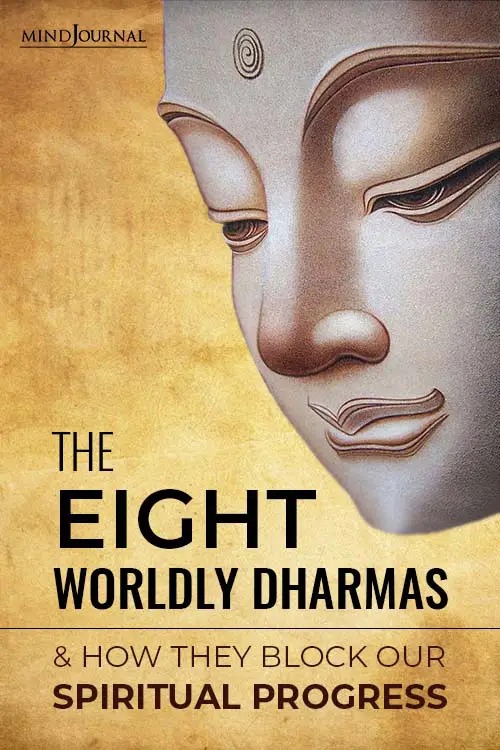
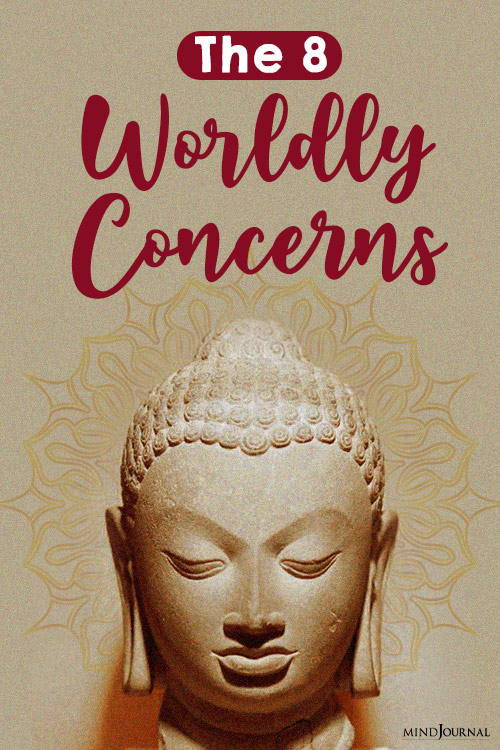
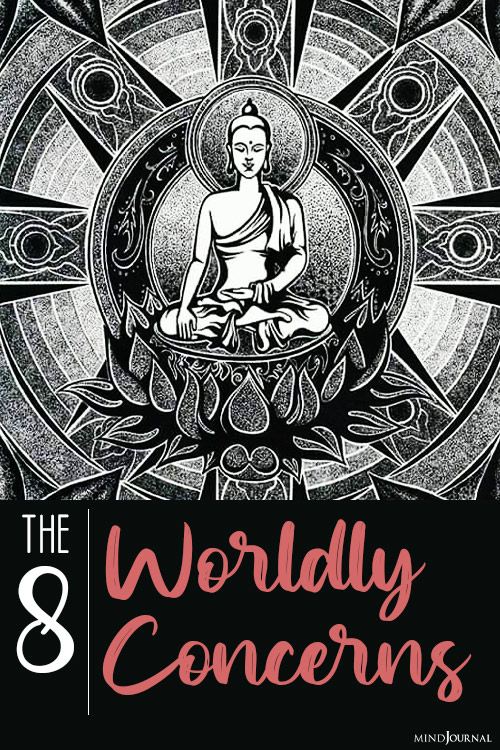
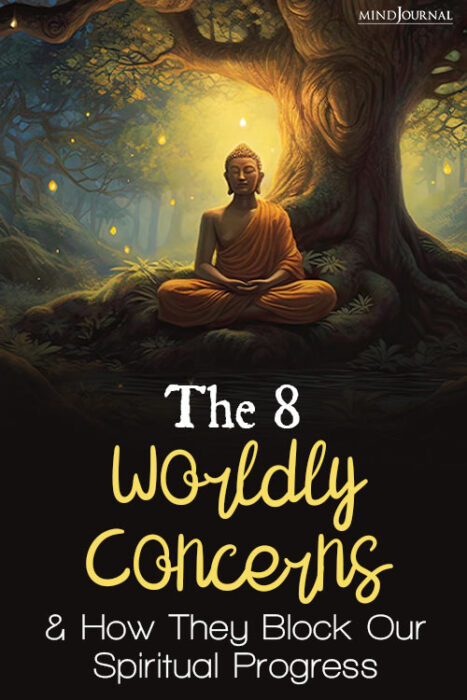
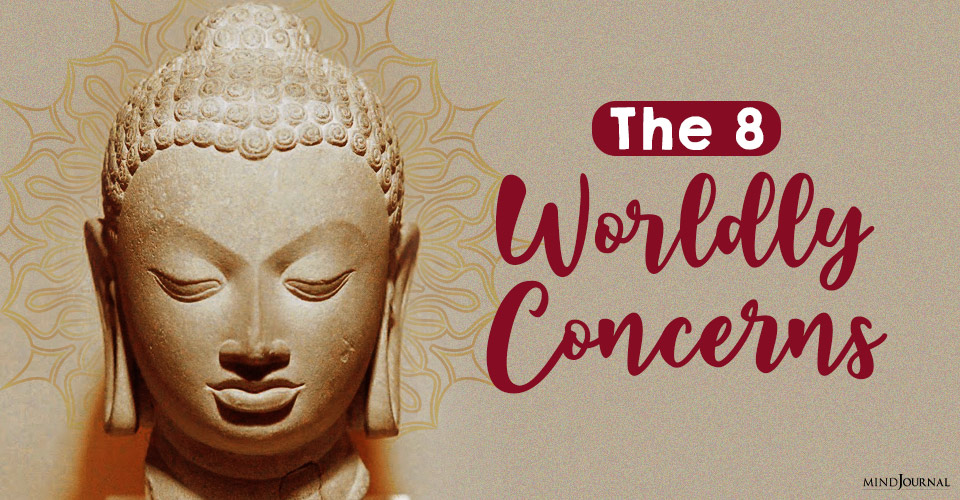
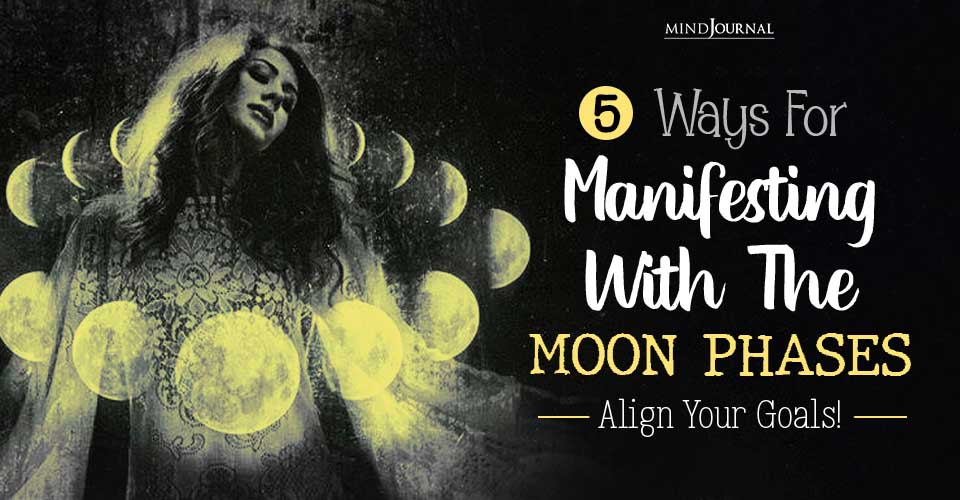
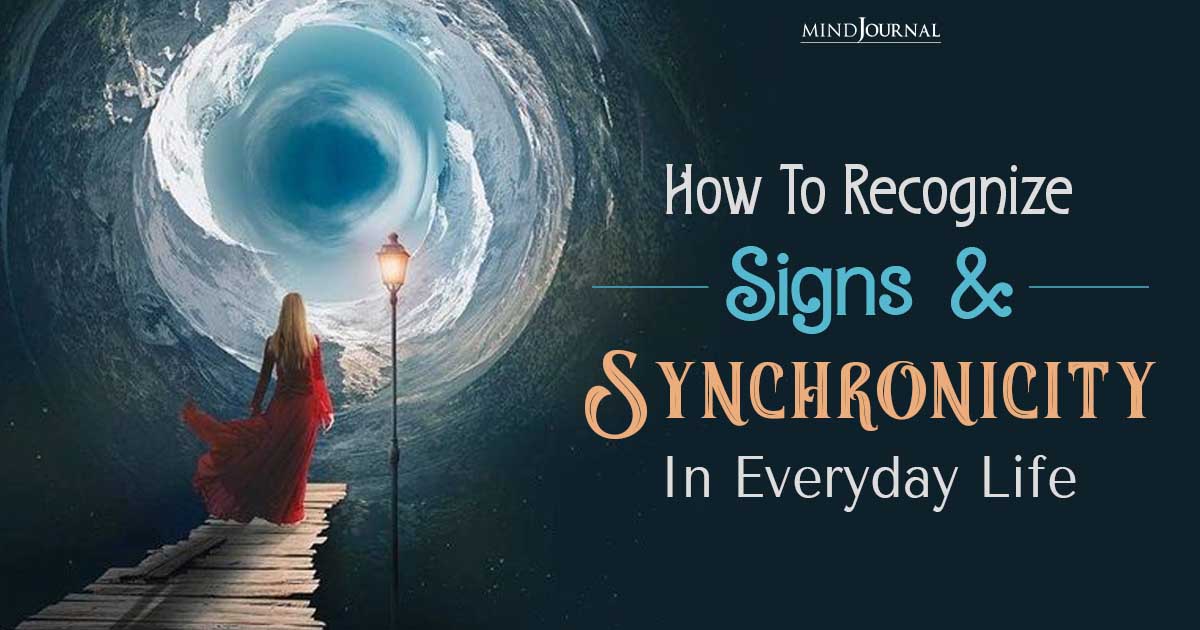
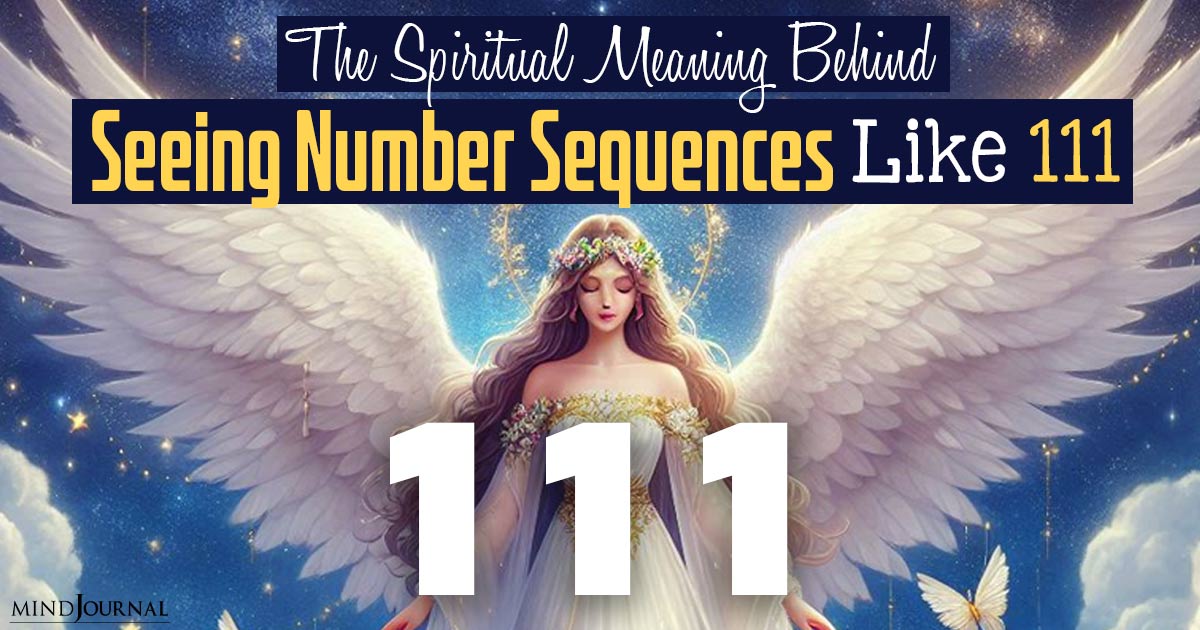
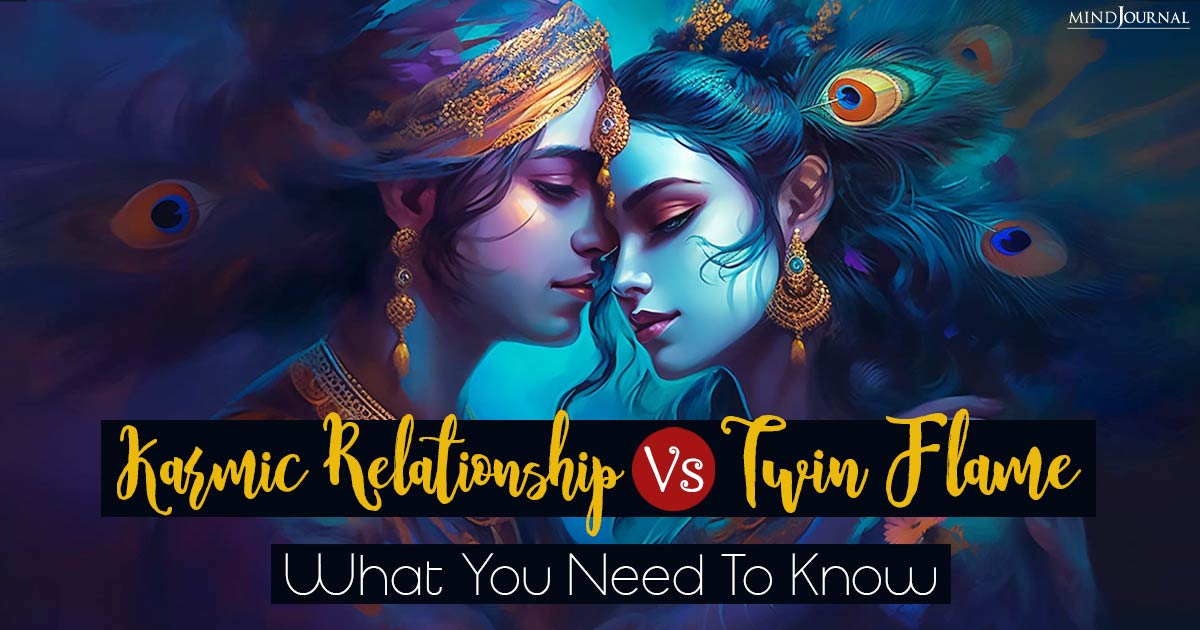
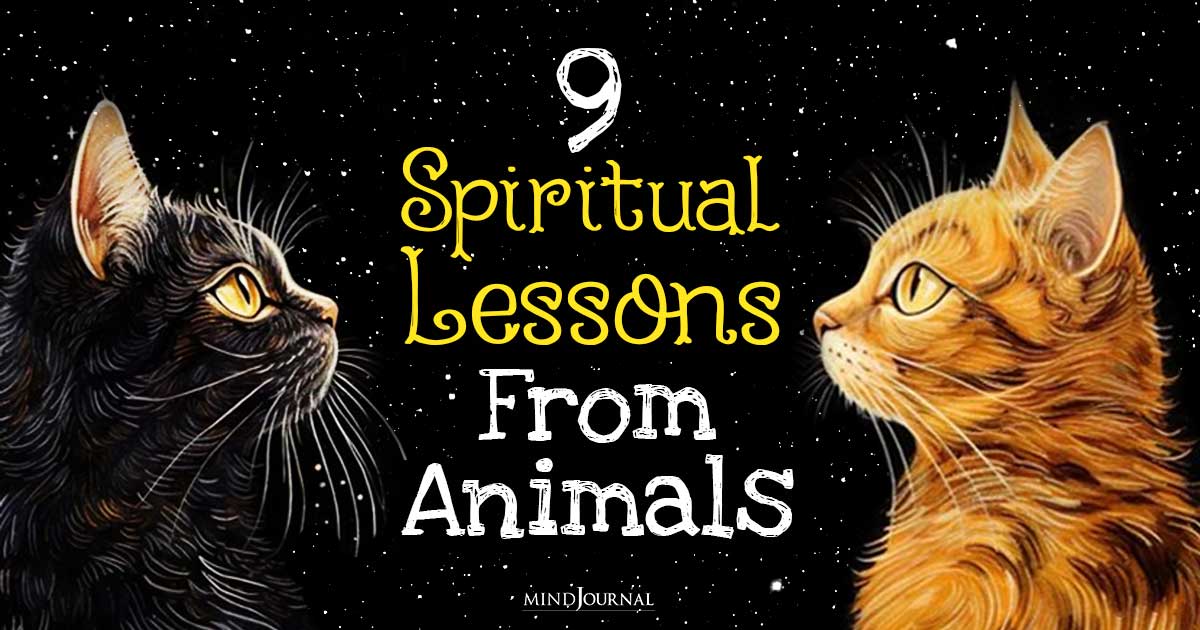
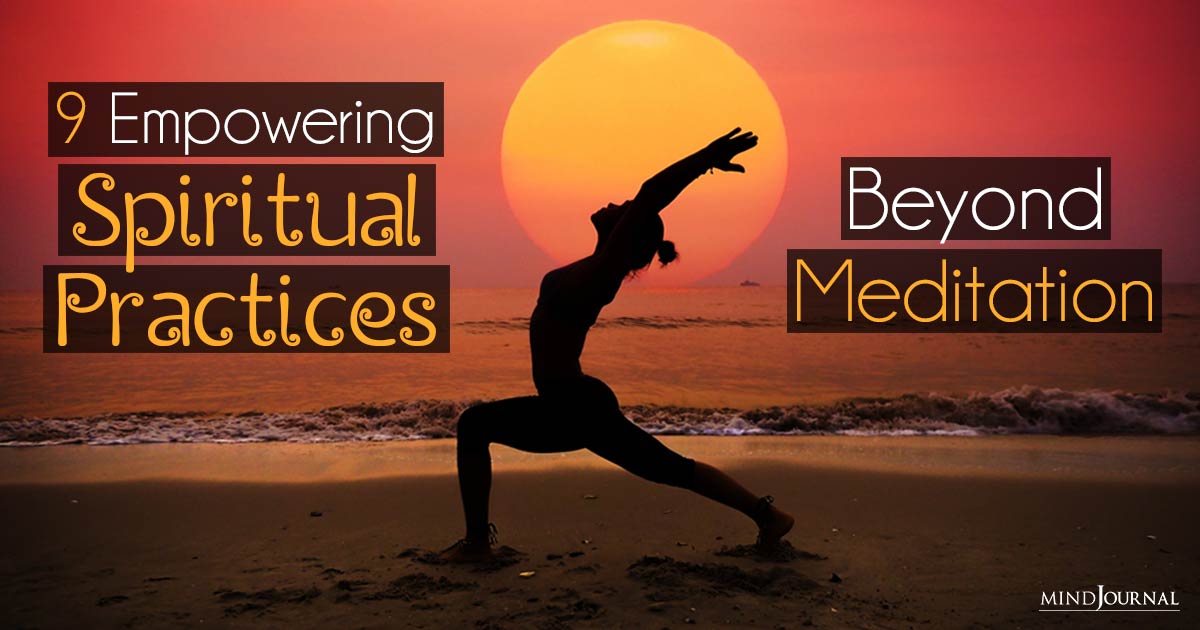

Leave a Reply
You must be logged in to post a comment.